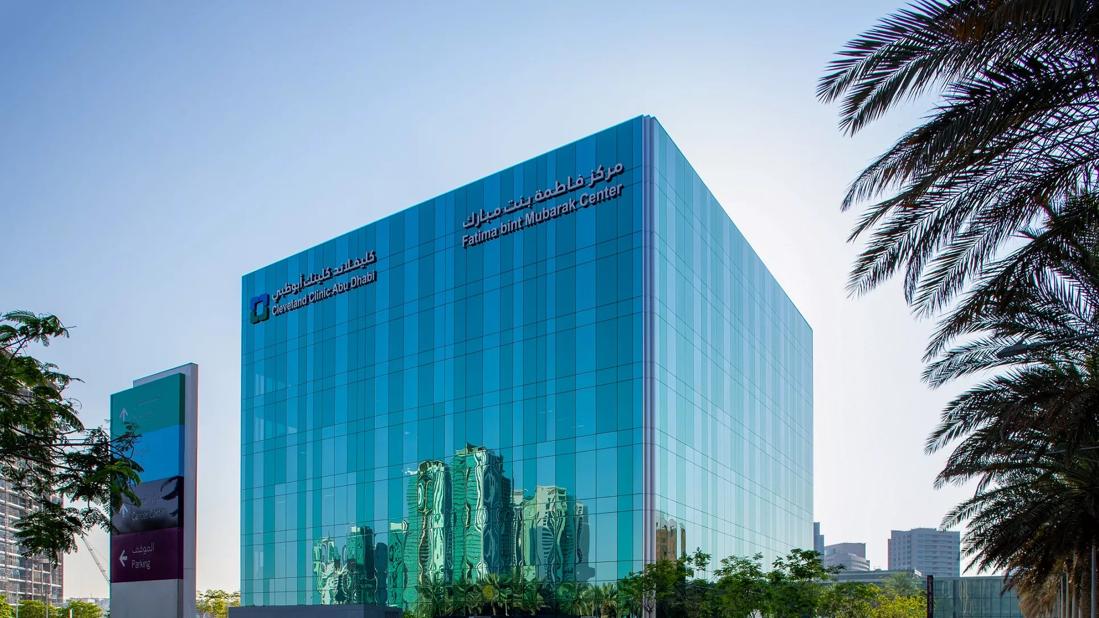A central hub for patient care and research expands Cleveland Clinic's world-class care around the globe

As the third leading cause of death in Abu Dhabi, cancer affects millions of patients and families across the region. Cleveland Clinic Abu Dhabi has broken ground on a state-of-the-art oncology center, a significant step in the UAE’s fight against the disease. The center is designed to meet the specific needs of cancer patients and their treatments and will bring an integrated and transformative approach to diagnosing and treating cancer to the UAE.
Advertisement
Cleveland Clinic is a non-profit academic medical center. Advertising on our site helps support our mission. We do not endorse non-Cleveland Clinic products or services. Policy
“One of the main reasons patients travel abroad is to seek cancer treatment,” says Stephen Grobmyer, MD, Chair of Cleveland Clinic Abu Dhabi’s Oncology Institute. “Patients who come to us will now have access to comprehensive, personalized care at a single location, as well as an expanded range of treatments available.”
Dr. Grobmyer will lead the new 18,767 square meter purpose-built center modelled on Cleveland Clinic’s Taussig Cancer Center, which is ranked in the top 10 hospitals for cancer care nationally by U.S. News & World Report. He is an expert in the management of breast cancer and led the Cleveland Clinic Comprehensive Breast Cancer Program before coming to Cleveland Clinic Abu Dhabi.
“In the U.S., I saw how a change to centralized services positively impacted patients and their families, and we are thrilled to bring this model of care to the people of the UAE,” says Dr. Grobmyer.
Designed with patients in mind, the nine-story facility will have dedicated clinical practice areas for advanced imaging, infusion, radiation and chemotherapy, as well as a connection to the main hospital’s surgical areas. The practice areas will have space for subspecialized nurses, social workers and patient support services.
The layout of each floor unites a range of complementary specialties, enhancing collaboration and enabling patients to receive most of their treatment in one area — a unique approach for patient care in the region. The center will have 24 exam rooms, 24 infusion rooms, two procedure rooms and an area devoted to specialty women’s services.
Advertisement
The building is designed to ensure the most comfortable flow for patients, provide an abundance of natural light and offer the optimal combination of clinical care with oncology patient support services and prayer rooms for patients.
In the future, it will also be a home for cancer research in the region, with a centralized hub for existing high-level treatment technology. “Our priority will be to answer cancer research questions that are specifically relevant to the people of the UAE and the regions that we serve. Areas of focus will be cancer screening and prevention, and investigating new technologies for cancer treatment.”
Cleveland Clinic Abu Dhabi’s current cancer services include positron emission tomography and computed tomography (PET-CT) for cancer diagnoses as well as advanced magnetic resonance imaging (MRI). Presently, advanced surgical procedures including robotics are performed for cancer patients with excellent results. Chemotherapy and other infusion treatments for cancer are also provided and supported by disease-specific tumor boards. When the center opens in 2022, services will expand to include radiation oncology, and disease-specific multidisciplinary teams will be fully enabled in the new oncology building to offer patients timely, state-of-the-art care in a supportive environment.
The new oncology center expands Cleveland Clinic’s efforts to bring world-class care to patients around the globe. “This really is a groundbreaking approach to cancer care that will not only serve the patients of the nation, but of the region and globe as well,” says Dr. Grobmyer. “This center will be the premier destination for cancer care in the Gulf region.”
Advertisement
Advertisement

Combining advanced imaging with targeted therapy in prostate cancer and neuroendocrine tumors

Early results show strong clinical benefit rates

The shifting role of cell therapy and steroids in the relapsed/refractory setting

Radiation therapy helped shrink hand nodules and improve functionality

Standard of care is linked to better outcomes, but disease recurrence and other risk factors often drive alternative approaches

Phase 1 study demonstrates immune response in three quarters of patients with triple-negative breast cancer

Multidisciplinary teams bring pathological and clinical expertise

Genetic variants exist irrespective of family history or other contributing factors